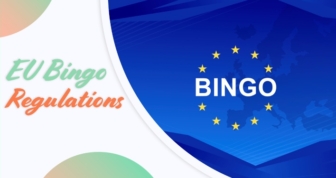
All forms of gambling in the UK are extremely well-regulated. Bingo players know that as long as the UK Gambling Commission licenses a site, then it is legal to play there and it is likely to be a safe and fair place to play. However, the simplicity of regulation in the UK is somewhat of an exception. One only has to look at the way that regulation works within the EU to understand this.
There are no EU-wide gambling or online bingo regulations. Rather each country in the bloc has its own set of rules and guidelines for the operation of online bingo platforms. However, some general principles can be found in nearly every member state, such as consumer protection, transparency, and responsible gaming measures.
In general, there are three different approaches to regulation. There are countries with a system similar to that of the UK, where all bingo operators must apply for a license from a local regulator. There are countries where there are no restrictions of any kind on online bingo sites. Finally, there are countries where foreign operators do not need a license but local operators do.
When looking at gambling markets within the EU, it quickly becomes apparent that the regulatory bodies have a very similar approach to online bingo. No matter which country one looks at, the gambling authorities uphold very similar standards. Here are just a few examples:

Malta has a strong regulatory framework for online gambling, including bingo. The Malta Gaming Authority (MGA) is the entity responsible for licensing and regulating online gambling operators within the country.
The MGA focuses on several key areas, including player protection, responsible gaming, and ensuring a transparent and fair gaming environment. Operators must apply for a license from the MGA and follow regulations in these areas.
Furthermore, the MGA collaborates with other European gambling authorities to maintain a high level of regulatory standards and share best practices. This collaboration helps to encourage a harmonized approach to online gambling regulation across the EU.

In Spain, online bingo is regulated by the Dirección General de Ordenación del Juego (DGOJ). Bingo operators targeting the Spanish market must obtain a license from the DGOJ and adhere to strict regulations regarding player protection, responsible gaming, and anti-fraud measures.
The DGOJ works to ensure that online bingo operators maintain a high level of security, protecting players’ personal and financial information. Operators are also required to implement measures to prevent problem gambling and to provide support to players who may be struggling with gambling addiction.

In France, online bingo is regulated by the Autorité Nationale des Jeux (ANJ). Operators must obtain a license from the ANJ and adhere to strict regulations regarding player protection, responsible gaming, and anti-money laundering measures.
The ANJ places a strong emphasis on transparency and fair play, requiring operators to undergo regular audits and inspections to ensure they maintain a high level of compliance. Additionally, French regulations focus on combating problem gambling, requiring operators to provide players with tools and resources to help them maintain control over their gambling habits.

The Swedish Gambling Authority (Spelinspektionen) oversees online bingo regulations in Sweden. To operate an online bingo platform in the country, operators must obtain a license and follow guidelines regarding player protection, responsible gaming, and anti-fraud measures.
Spelinspektionen ensures that operators maintain a secure and transparent gaming environment, with strict requirements for the handling of players’ personal and financial data. Additionally, the Swedish regulations place a strong emphasis on responsible gaming, with operators required to implement measures to prevent problem gambling and support players who may be struggling with gambling addiction.
As mentioned, no matter where one looks in the EU, some shared principles, approaches and standards can be found.

EU countries nearly always place a strong emphasis on player protection within online bingo regulations. This includes measures such as age verification, ensuring the security of personal and financial data, and offering self-exclusion options for players who may be struggling with gambling addiction.

Responsible gaming measures are becoming more and more important. Operators are usually required to provide tools and resources that help players maintain control over their gambling habits. This may include setting deposit limits, offering self-exclusion options, and providing access to support services for problem gambling.

The EU requires operators to implement strict anti-money laundering (AML) and anti-fraud measures. This may involve conducting background checks on operators and players, monitoring transactions for suspicious activity, and working with law enforcement and other regulatory bodies to combat criminal activity.

Ensuring transparency and fair play is key to the work of gambling authorities in the EU. This involves requiring operators to use random number generators (RNGs) for their games, undergo regular audits and inspections to ensure compliance, and disclose the odds and rules of their games to players.
While the specifics of online bingo regulation may vary between EU countries, the general approach ensures that players in almost every EU country can enjoy a safe, responsible, and transparent gaming environment.
If you are travelling from the UK to an EU country and want to enjoy online bingo abroad, make sure that you check the local regulations. You will most likely find that there are several excellent options and can enjoy uninterrupted bingo fun while on your holiday.